Infor ERP has established itself as a reliable choice for companies seeking robust enterprise resource planning solutions. Known for its adaptability across various industries, Infor ERP integrates advanced functionalities tailored to improve business efficiency.
This article delves into Infor ERP’s core features, along with its benefits and limitations. By the end, we’ll also explore how HashMicro ERP presents a competitive alternative, offering unique advantages for companies in the Philippines.
Key Takeaways
|
Table of Contents
Understand What is Infor ERP
Infor ERP is a comprehensive enterprise resource planning system designed to streamline and automate business processes across various industries. Known for its cloud-based solutions, Infor ERP supports core business functions such as finance, inventory, and manufacturing.
Infor’s ERP suite is built with flexibility in mind, offering modules that can be customized to meet unique business requirements. This adaptability makes it a strong choice for companies of different sizes and sectors, especially those in manufacturing and distribution.
Additionally, Infor ERP integrates advanced analytics and AI to enhance decision-making, providing real-time insights to improve operational efficiency. With a focus on user experience, Infor’s cloud-based ERP delivers a modern interface that enables quick adoption and scalability for growing businesses.
Need to know!
AI in ERP helps you to streamline your business processes by integrating various business activities into one single platform. One of them is Hashy AI ready to help you 24/7.
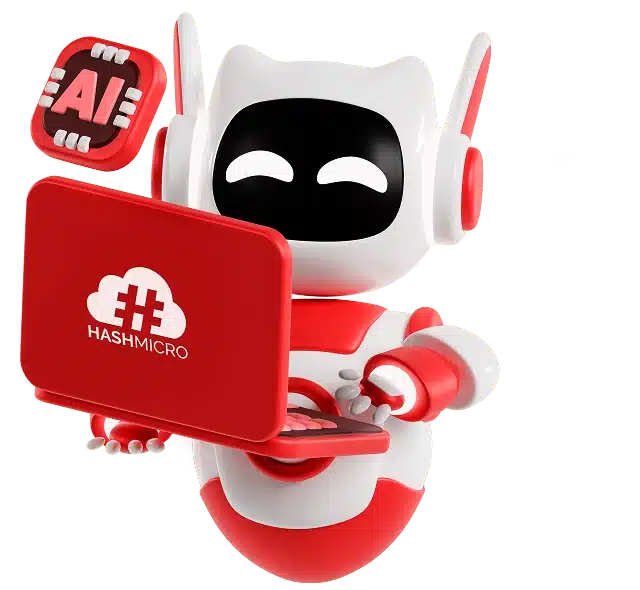
Get a Free Demo Now!
Features and Strengths of Infor ERP
Infor ERP system provides a variety of features designed to support businesses in managing their operations more efficiently. While it offers some industry-specific tools and flexible customization options, its core functionalities remain similar to other ERP solutions.
Let’s take a closer look at the essential features Infor ERP offers:
- Cloud-Based Accessibility: Infor ERP offers a cloud-first architecture, allowing businesses to access their ERP system remotely and manage operations from anywhere.
- Industry-Specific Functionality: The platform provides specialized features for sectors like manufacturing, healthcare, and retail to meet unique industry demands.
- Integrated AI and Analytics: Infor ERP includes built-in AI and data analytics for better decision-making and operational insights.
- Scalable Modular Design: Businesses can tailor their ERP experience by selecting only the modules they need, making it adaptable as the company grows.
- User-Friendly Interface: With an intuitive, modern design, Infor ERP aims to ease the adoption process and improve the user experience for all employees.
These features enable companies to enhance their productivity, streamline workflows, and improve strategic decisions.
Drawbacks of Infor ERP
While Infor ERP offers a range of features, several drawbacks have been noted. According to a review from The CFO Club, here are the drawbacks of Infor ERP that you should consider before adopting the software.
- Complexity: Implementing and using Infor ERP can be challenging, especially for businesses without a dedicated IT department. The system’s complexity may lead to longer implementation times and increased costs.
- Higher Cost: Infor ERP tends to be more expensive than some of its competitors, which might be a barrier for smaller businesses. Organizations should carefully evaluate their needs and weigh the costs against the potential benefits before making a decision.
- Customization Limitations: While Infor ERP offers a high degree of customization, some users may find it less flexible than other ERP solutions. This can be a limitation for businesses with unique requirements or those that need to tailor the system to specific industry or operational needs.
These considerations are important for businesses evaluating Infor ERP as their enterprise resource planning solution.
21 Best Alternatives of Infor ERP
If you’re looking for another software solution that can be the right alternative of Infor ERP, you’re at the right place. Below are the 21 best ERP software to help you determine the best solution for your business.
1. HashMicro ERP
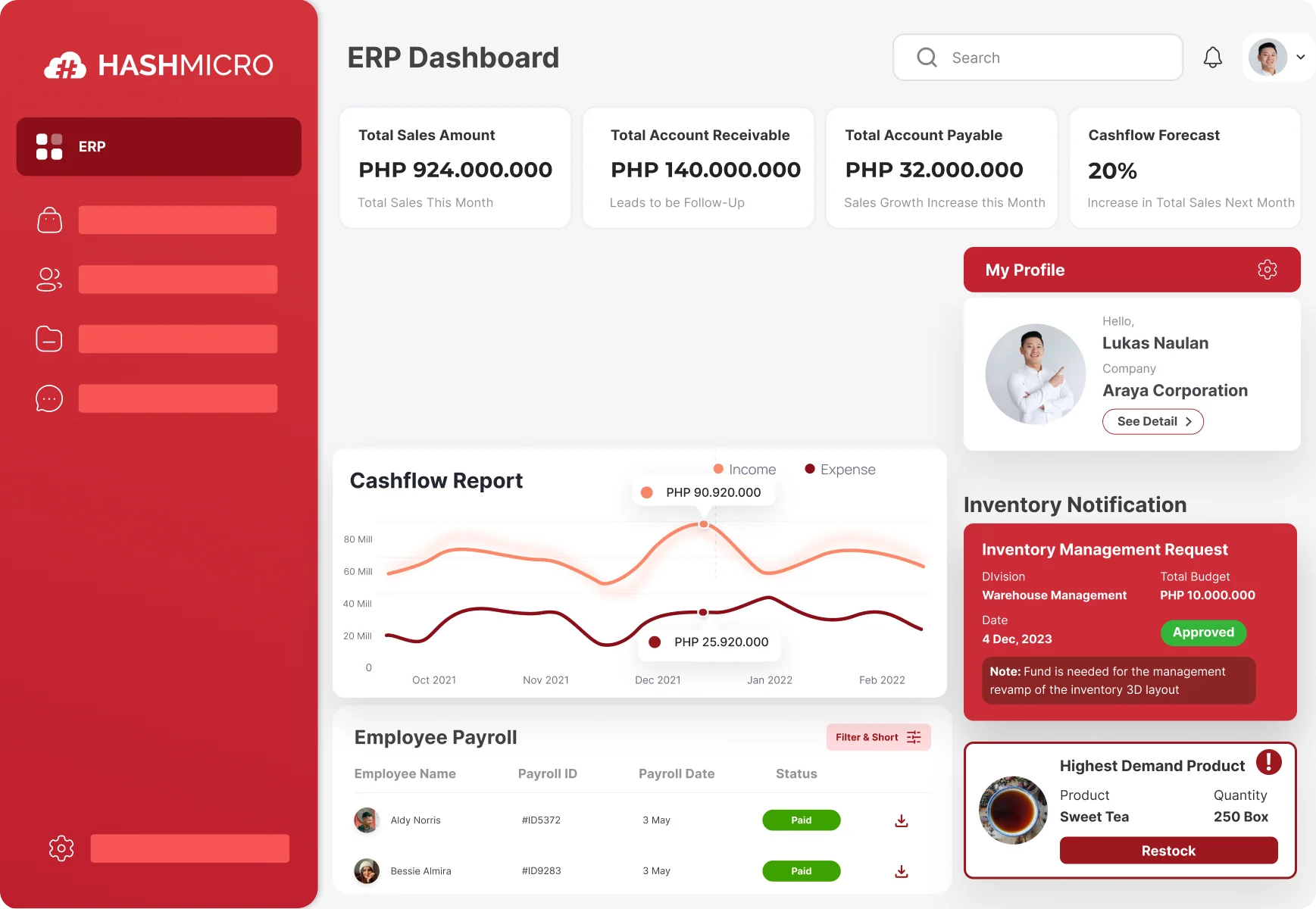
HashMicro is recognized as the leading ERP solution in the Philippines, serving over 2000 clients across Asia from various industries. As a leader in enterprise technology, HashMicro offers tailored solutions that empower businesses to optimize their operations and drive growth.
HashMicro ERP software distinguishes itself with cutting-edge technology and comprehensive features designed to meet the diverse needs of modern enterprises. HashMicro confidently showcases the capabilities of its software and extends an invitation for a free demo to demonstrate how it can streamline business processes and enhance operational efficiency.
HashMicro ERP software delivers substantial benefits to organizations, including unlimited user licenses, hybrid access capabilities (both online and offline), and seamless module integration. These benefits ensure that businesses of all sizes can operate efficiently and adapt to changes without the need for constant upgrades or additional investments.
HashMicro ERP Features:
- Real-Time Data Processing: Instant access to data ensures timely decision-making.
- Comprehensive Reporting Tools: Advanced tools that generate detailed reports and analytics.
- Inventory Management: Efficient tracking and management of stock levels, orders, and deliveries.
- Financial Management: Robust financial tools that support budgeting, forecasting, and financial reporting.
- Customer Relationship Management (CRM): Enhances customer service and satisfaction through better relationship management.
Pros of HashMicro ERP:
- Allows an unlimited number of users without additional cost.
- Intuitive interfaces that simplify complex data analysis.
- Incorporates AI to optimize operations and predict trends.
- Highly customizable to meet specific business needs.
- Seamless integration with various third-party applications.
- Dedicated support ensuring smooth operation post-implementation.
- Transparent pricing with no unexpected fees.
- Precise and comprehensive data analysis.
- Online and offline capabilities ensure continuous operation.
Cons of HashMicro ERP:
- The robustness and scale of features may be overwhelming for smaller enterprises.
- There may be a wait time involved to schedule a free demonstration due to high demand.
If you’re curious to explore more about HashMicro ERP, you can download the price scheme below.

2. SAP
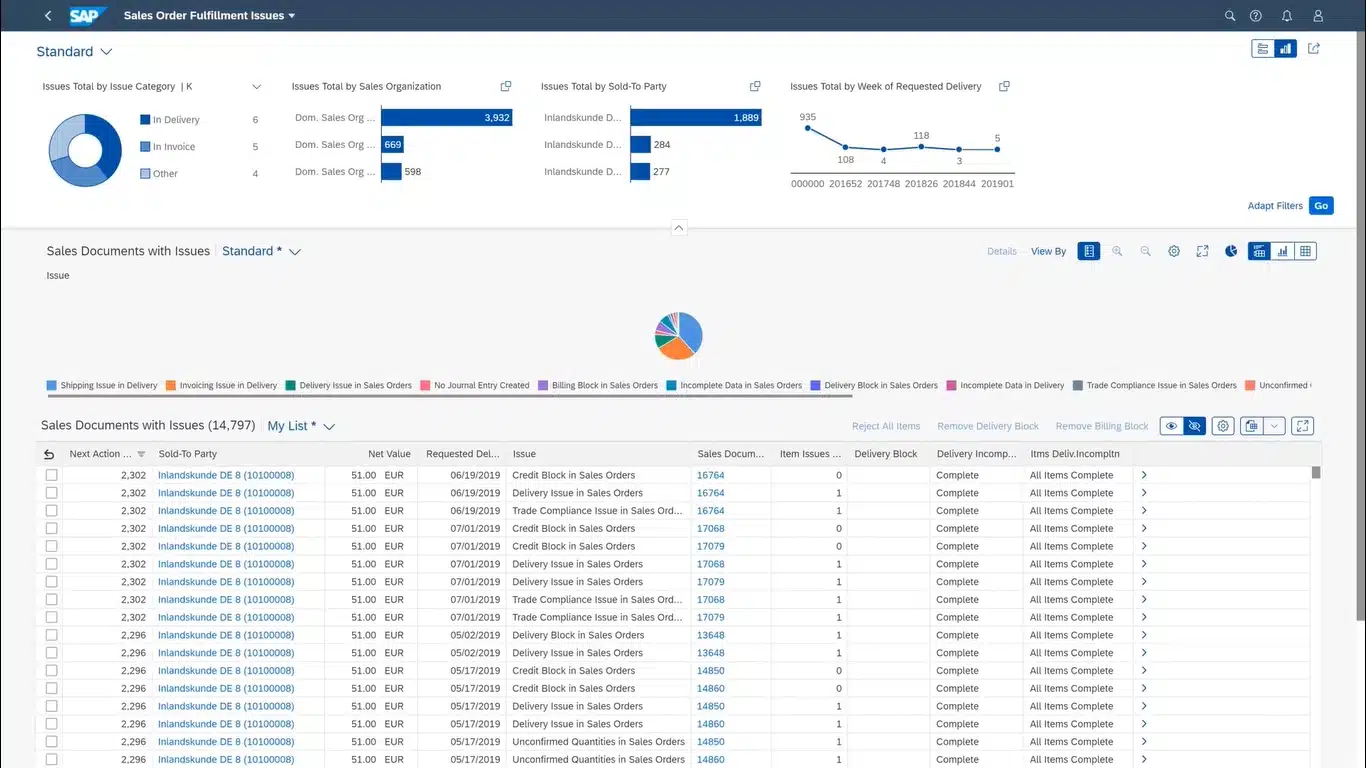
SAP S/4HANA Cloud is a leading ERP solution widely used by large enterprises, particularly in manufacturing and distribution sectors. SAP is renowned for its ability to handle complex and large-scale business operations, with a focus on operational efficiency and real-time data processing.
However, despite its robust features, SAP S/4HANA Cloud implementation can be complex and time-consuming. Additionally, the high costs and the need for skilled internal resources often pose barriers for mid-sized businesses looking to adopt it.
SAP S/4HANA Cloud Features:
- Manufacturing and Supply Chain Management
- Financial Accounting
- Inventory Management
- Analytics and Business Intelligence
- Procurement and Purchasing Management
Pros:
- Highly integrated ERP solution for large enterprises
- Advanced analytics and reporting capabilities
- Strong automation features for operational efficiency
Cons:
- High implementation and maintenance costs
- Long implementation timelines and requires an experienced IT team
- Steep learning curve for new users
- System complexity can be challenging for businesses with simpler processes
3. Microsoft Dynamics 365
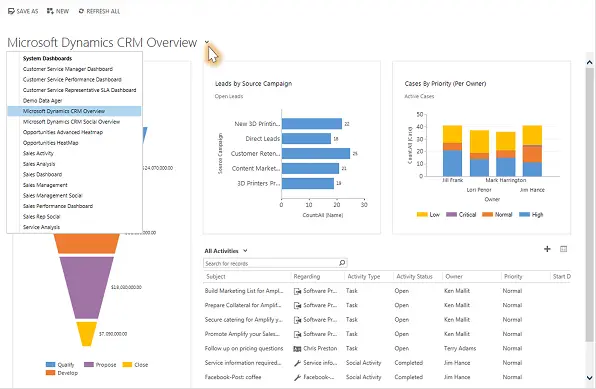
Microsoft Dynamics 365 is a cloud-based ERP solution that integrates a range of business applications to improve productivity and streamline operations. It provides a unified platform for finance, sales, customer service, supply chain management, and more, making it a strong contender in the ERP market.
However, while Dynamics 365 offers robust functionality, it can still be challenging for businesses to fully utilize its vast features without adequate expertise. Some users report that the software’s flexibility can lead to implementation complexities, especially for smaller businesses that don’t require all the advanced capabilities.
Microsoft Dynamics 365 Features:
- Financial Management
- Sales and Customer Service Management
- Supply Chain Management
- Human Resources Management
- Business Intelligence and Analytics
Pros:
- Seamless integration with other Microsoft products
- Cloud-based with real-time data access and collaboration
- Flexible and customizable to meet different business needs
Cons:
- Can be overwhelming for smaller businesses due to its wide range of features
- Complex implementation requiring expertise and resources
- Costs may increase as additional modules and integrations are added
- The learning curve for users unfamiliar with Microsoft ecosystems
4. Oracle
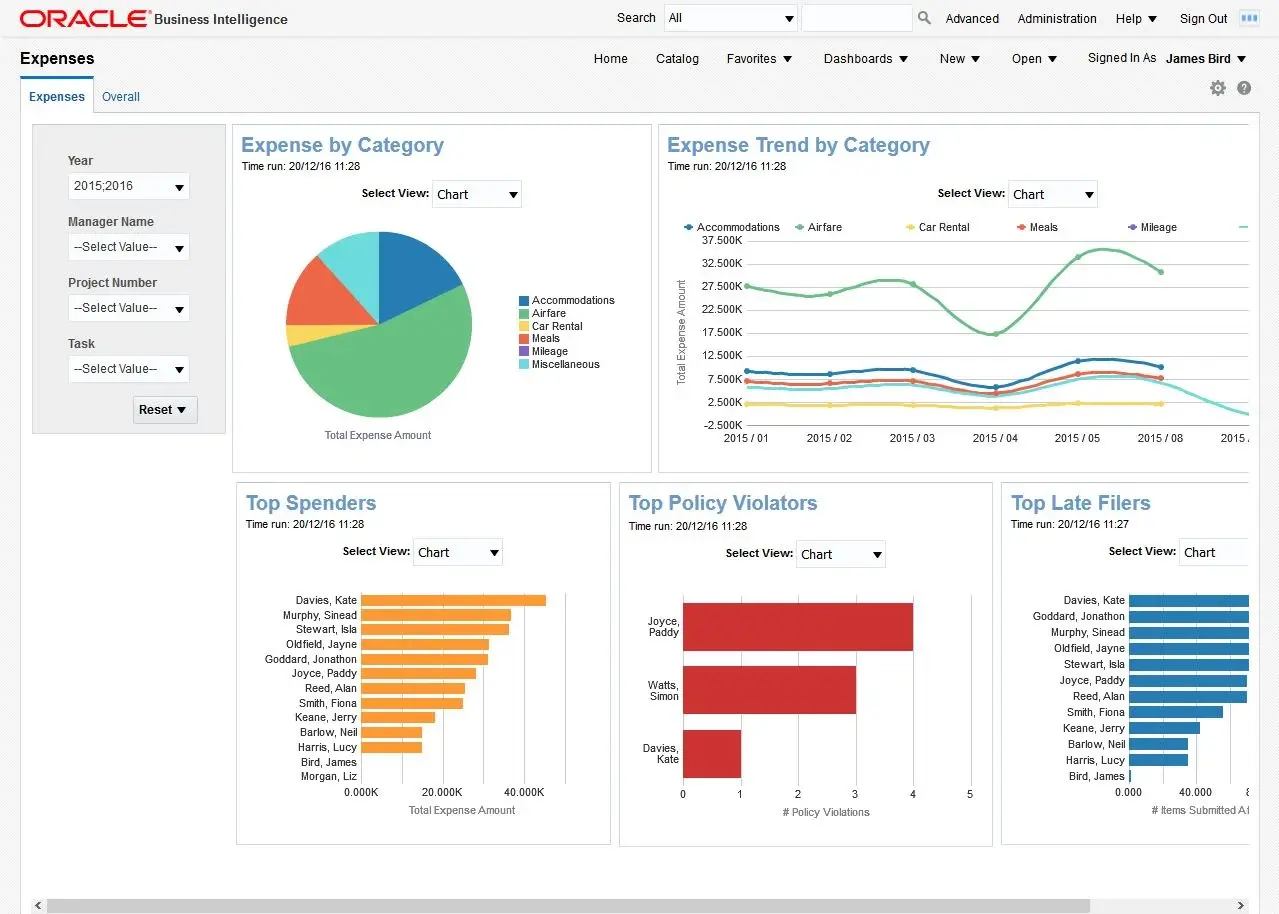
Oracle Fusion Cloud ERP offers a comprehensive cloud-based solution that covers various business functions like finance, procurement, supply chain, and project management. It’s known for its advanced features and robust capabilities, particularly for large enterprises that need real-time insights, automation, and global scalability.
However, Oracle Fusion Cloud ERP is often considered complex and expensive, especially for smaller businesses. The implementation process can be lengthy and requires significant investment in time and resources. Additionally, users report that customization can be challenging without specialized expertise.
Oracle Fusion Cloud ERP Features:
- Financial Management
- Supply Chain and Procurement
- Project Management
- Enterprise Performance Management (EPM)
- Artificial Intelligence and Analytics
Pros:
- Advanced AI and data analytics capabilities
- Global scalability and real-time insights
- Strong integration with Oracle’s cloud ecosystem
Cons:
- High implementation and maintenance costs
- Requires specialized expertise for customization
- Can be overwhelming for smaller businesses
5. Epicor ERP
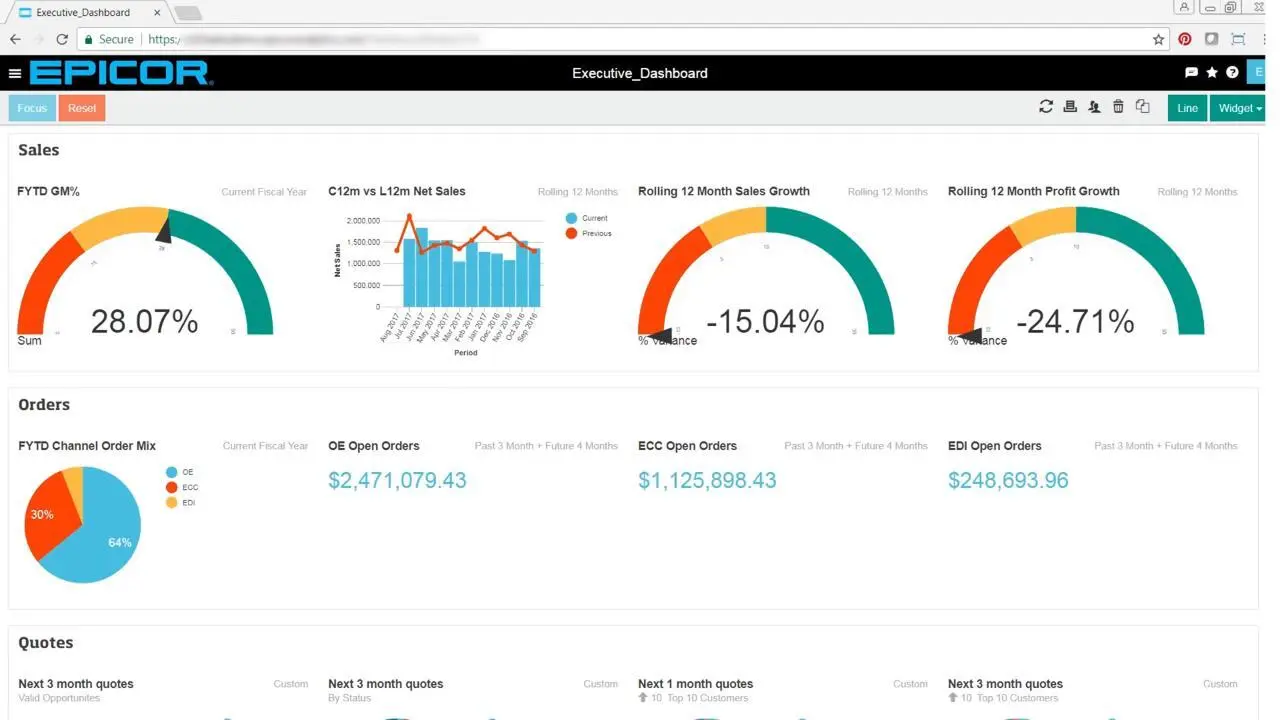
Epicor ERP is a cloud-based enterprise resource planning solution tailored primarily for product-centric businesses. It offers a range of functionalities to support industries in manufacturing, distribution, retail, and services. The platform is engineered to enhance efficiency and improve resource management across the business.
However, users have reported that while Epicor ERP is generally reliable, it can encounter issues with system updates and integrations. Some users find that updates can be disruptive and may introduce new challenges with system stability. Additionally, the customization process, while robust, can be complex and often requires technical expertise.
Epicor ERP Features:
- Industry-specific solutions for manufacturing, distribution, retail, and services
- Comprehensive reporting and analytics
- User-friendly interface
Pros:
- Tailored to meet the specific needs of product-centric industries
- Enhanced efficiency and improved resource management
- User-friendly and efficient in handling comprehensive reporting needs
Cons:
- Potential challenges with system updates and integration
- Complexity in customization which may require additional expertise
- Occasional issues with system stability during updates
6. Sage
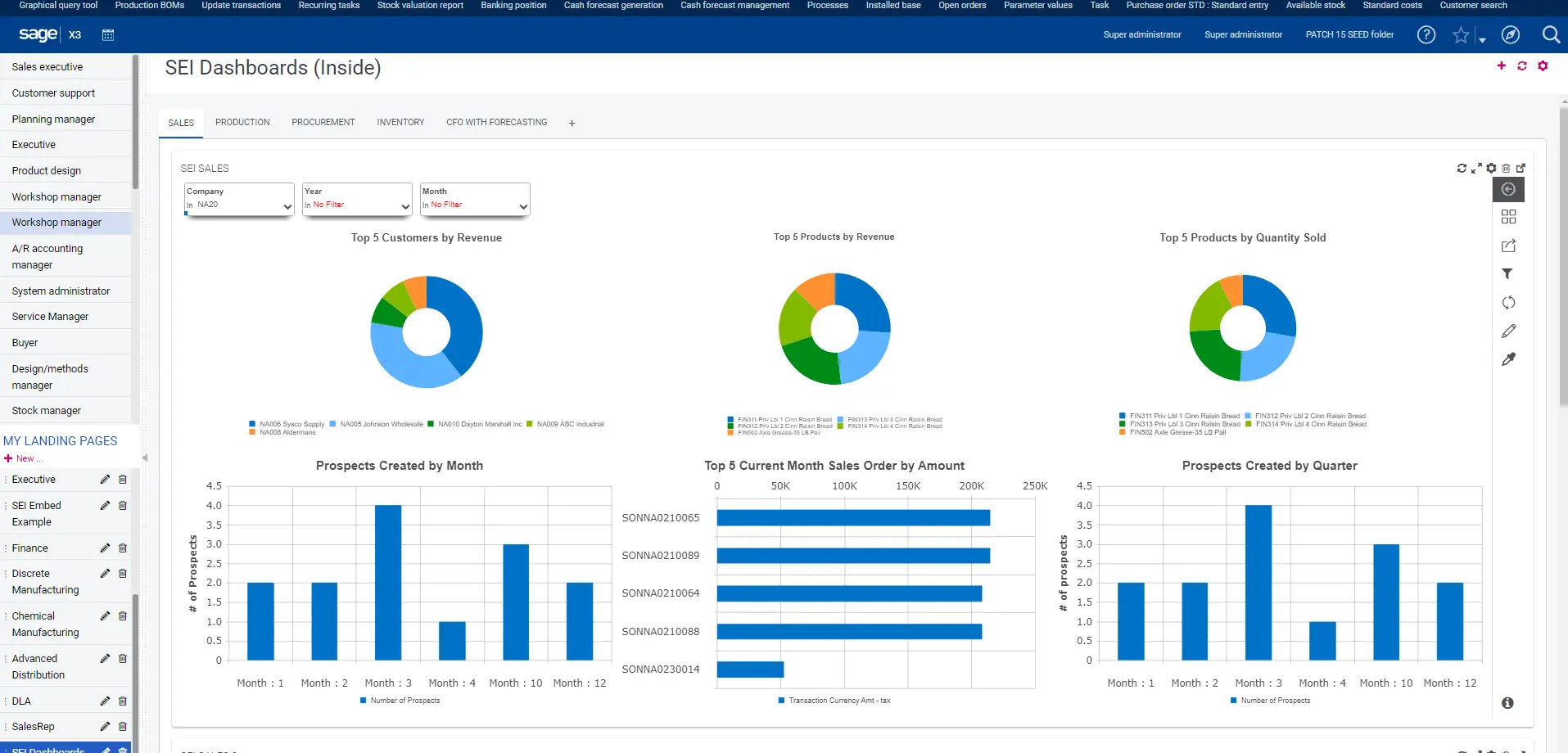
Sage Intacct is a cloud-based financial management solution designed to streamline accounting processes for small to mid-sized businesses. The platform is recognized for its user-friendly interface and robust reporting capabilities, enabling organizations to make informed financial decisions.
However, some users have reported challenges during the initial setup, citing a steep learning curve due to the system’s extensive features. Additionally, while the platform offers customization options, certain complex configurations may require technical expertise, potentially increasing implementation time and costs.
Sage Features:
- General ledger
- Accounts payable and receivable
- Cash management
- Order management
- Real-time reporting and dashboards
Pros:
- Comprehensive financial management capabilities
- User-friendly interface
- Scalable to accommodate business growth
Cons:
- Initial setup can be complex
- Steep learning curve for new users
- Advanced customization may require technical expertise
7. IFS Cloud
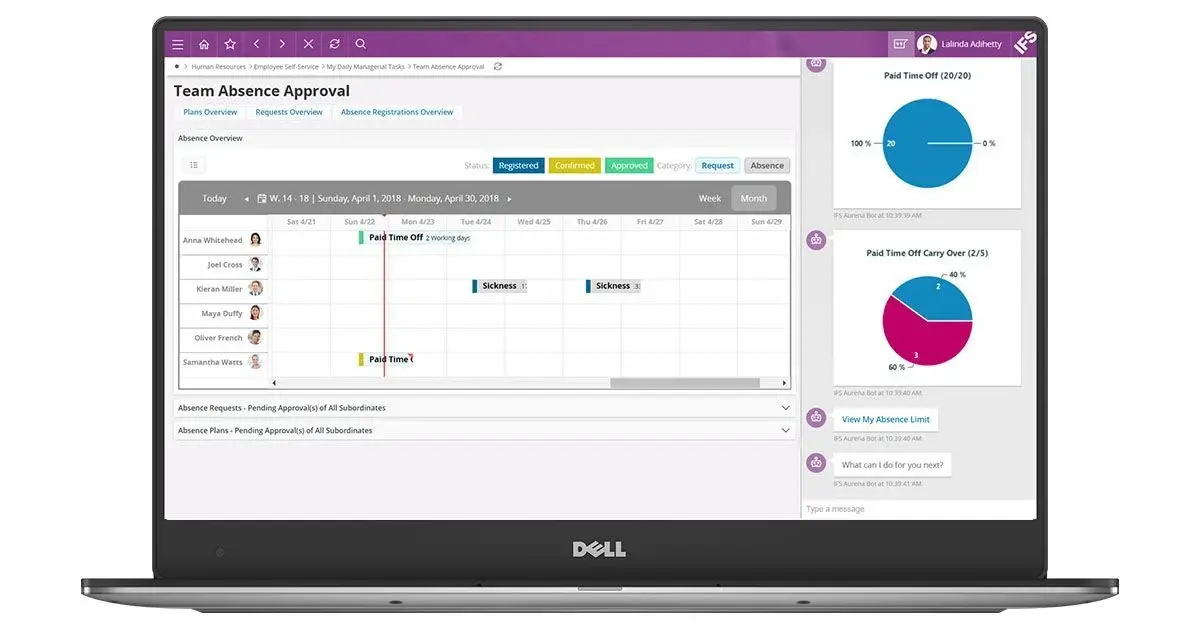
IFS Cloud is a comprehensive, composable enterprise software that integrates ERP, Service Management, and Enterprise Asset Management capabilities. Targeting industries such as manufacturing, energy, utilities, construction, aerospace, and defense, it allows businesses to select the modules they need to manage operations.
However, some users have pointed out that while IFS Cloud provides a robust set of features, its complexity may overwhelm smaller organizations or those with fewer resources. Additionally, the implementation process can also take longer than anticipated due to its wide range of customization options.
IFS Cloud Features:
- ERP, Service Management, and Asset Management modules
- IFS.ai for AI-driven optimization and anomaly detection
- Industry-specific capabilities for manufacturing, energy, construction, and more
Pros:
- Flexible, modular platform tailored for various industries
- AI-driven solutions for efficiency improvement
- Strong asset management and service capabilities
Cons:
- Complexity can be overwhelming for smaller businesses
- High cost for some organizations
- Lengthy implementation time with customization needs
8. QAD
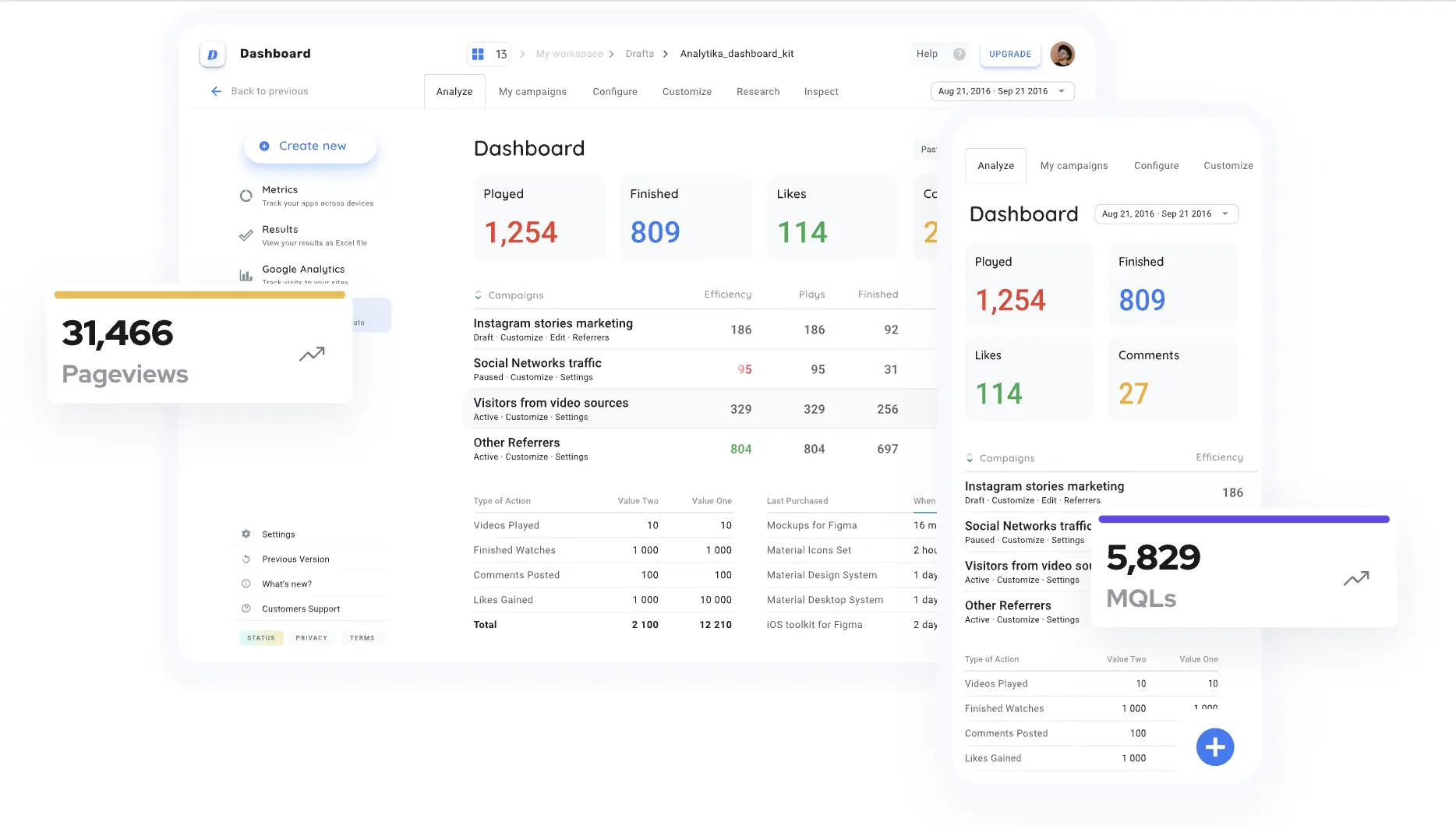
QAD Adaptive ERP is a cloud-based enterprise resource planning (ERP) solution tailored to manufacturers, offering scalability, rapid deployment, and support for global operations. It provides robust supply chain capabilities and integrates seamlessly with QAD’s portfolio of applications.
Despite its advanced features, QAD Adaptive ERP can be complex, making it challenging for smaller businesses without dedicated IT teams to implement and manage effectively. The user interface is often cited as less intuitive, and some customers have experienced difficulties with integration to other systems.
QAD Features:
- Cloud-based ERP with scalable architecture
- Supply chain management and manufacturing-specific solutions
- Integration with QAD’s Adaptive Applications portfolio
- Real-time access to business data
Pros:
- Tailored for manufacturers with comprehensive functionality
- Flexible and scalable cloud ERP solution
- Global support and regional deployment options
Cons:
- Complexity in implementation for smaller businesses
- User interface can be difficult to navigate
- High cost of implementation and ongoing usage
- Integration issues with third-party systems
9. SYSPRO
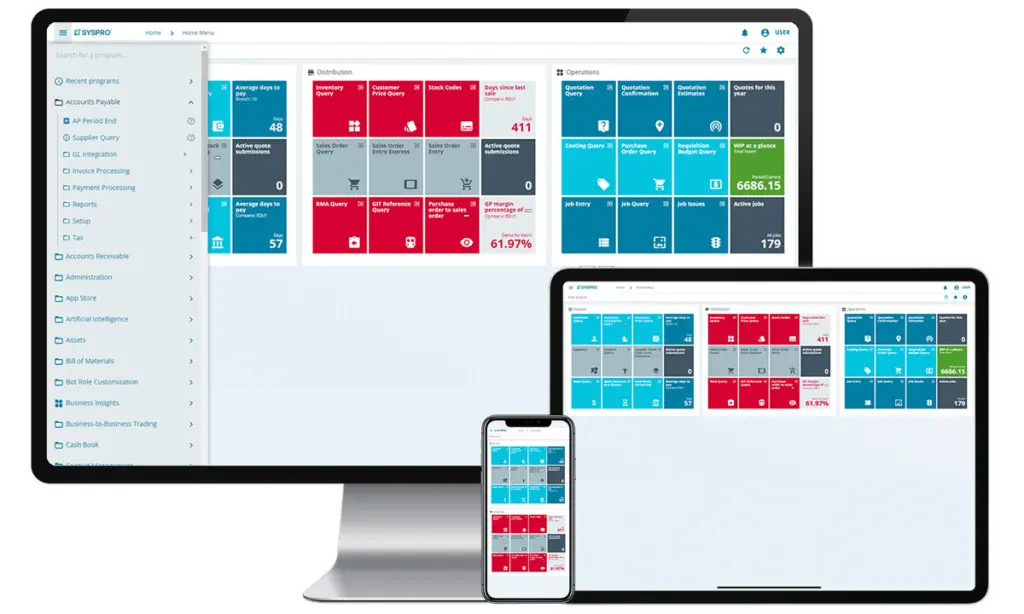
SYSPRO is an ERP solution designed specifically for manufacturing and distribution businesses, offering features like Manufacturing Operations Management (MOM), inventory management, procurement, and supply chain functionality. The platform is flexible, allowing deployment in the cloud, on-premise, or in a hybrid environment.
However, some users have noted that while SYSPRO offers extensive functionalities, its user interface can be difficult to navigate, particularly for businesses with less technical expertise. The platform’s complexity may result in a longer implementation process, and its pricing can be prohibitive for smaller companies.
SYSPRO Features:
- Manufacturing Operations Management (MOM)
- Inventory and supply chain management
- AI, ML, and IoT integrations
- Scalable deployment options (cloud, on-premise, hybrid)
Pros:
- Tailored for manufacturing and distribution businesses
- Flexible deployment options
- Advanced supply chain and inventory management features
- Support for emerging technologies like AI and IoT
Cons:
- Steep learning curve for non-technical users
- Complex user interface
- High implementation and ongoing costs
- Requires additional resources for customization
10. Acumatica
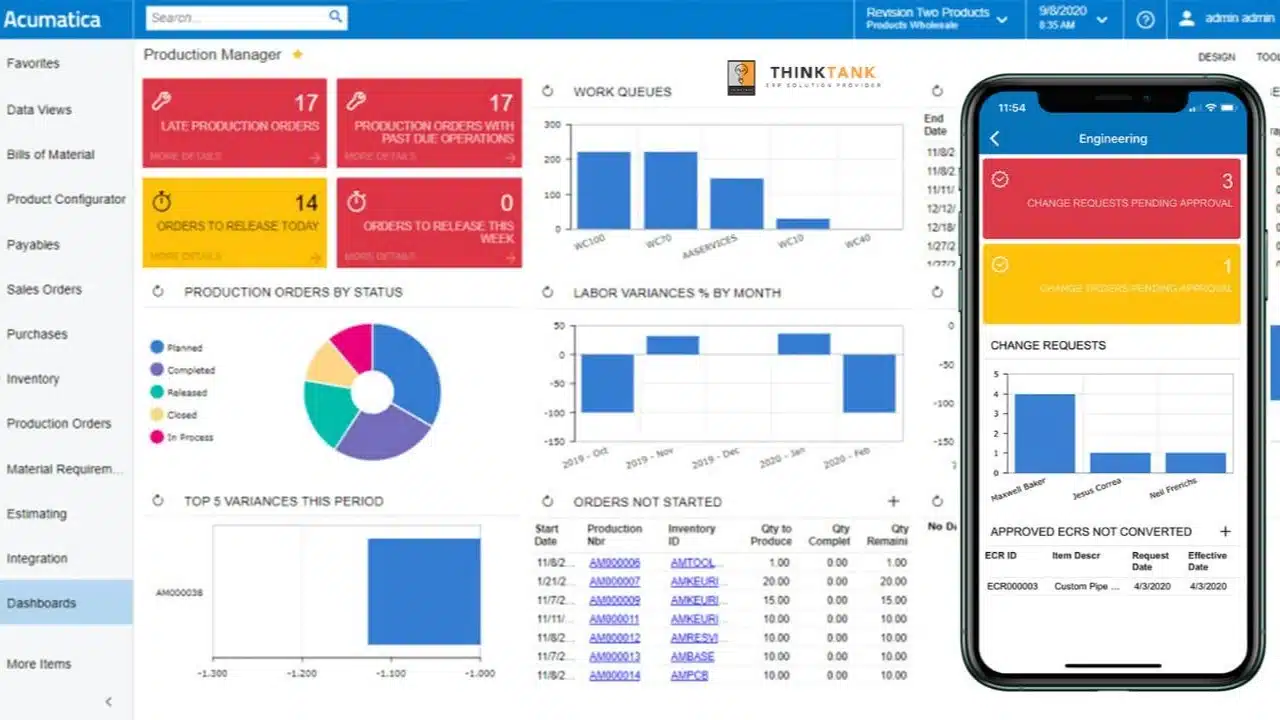
Acumatica Cloud ERP is a comprehensive business management solution designed for small to mid-sized organizations, offering a wide range of applications for financial management, project accounting, inventory management, CRM, and more. It provides industry-specific editions, such as the Manufacturing Edition.
However, despite its flexible platform, Acumatica has received mixed reviews regarding ease of use, with some users highlighting the steep learning curve and a less-than-intuitive user interface. Additionally, the pricing structure is complex, and the total cost can be high, especially for smaller businesses with limited budgets.
Acumatica Features:
- Cloud-based ERP with financial management, inventory, and CRM
- Industry-specific editions (e.g., Manufacturing, Distribution)
- Scalable architecture for growing businesses
- Remote collaboration and rapid integrations
Pros:
- Comprehensive functionality for small to mid-sized businesses
- Flexible cloud platform with industry-specific solutions
- Scalable for business growth
- Seamless remote collaboration and integration
Cons:
- Steep learning curve and challenging user interface
- Complex pricing structure, potentially costly for small businesses
- Integration challenges with third-party systems
11. Zoho
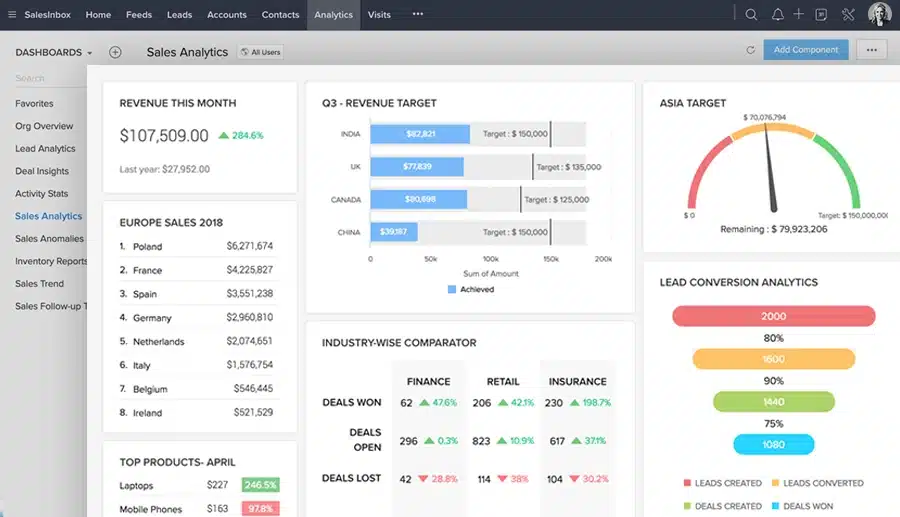
Zoho ERP is an integrated suite of business applications tailored for businesses with simple needs. Its cloud-based system helps businesses manage operations, finances, and customer relations efficiently, offering real-time collaboration and accessibility.
The system supports diverse industries with customizable modules and seamless integration capabilities. However, users often need help adapting to its complex ecosystem, particularly when scaling operations or integrating with third-party software.
Zoho Features:
- Process automation and workflow management
- Financial management tools
- Custom reporting tools
Pros:
- Users can customize the system extensively to fit their needs
- The platform provides excellent integration capabilities
- Cloud-based security and accessible from anywhere
Cons:
- The extensive features can be overwhelming, leading to a learning curve
- There may be limitations in integrating with external applications
- Customer support challenges
12. NetSuite
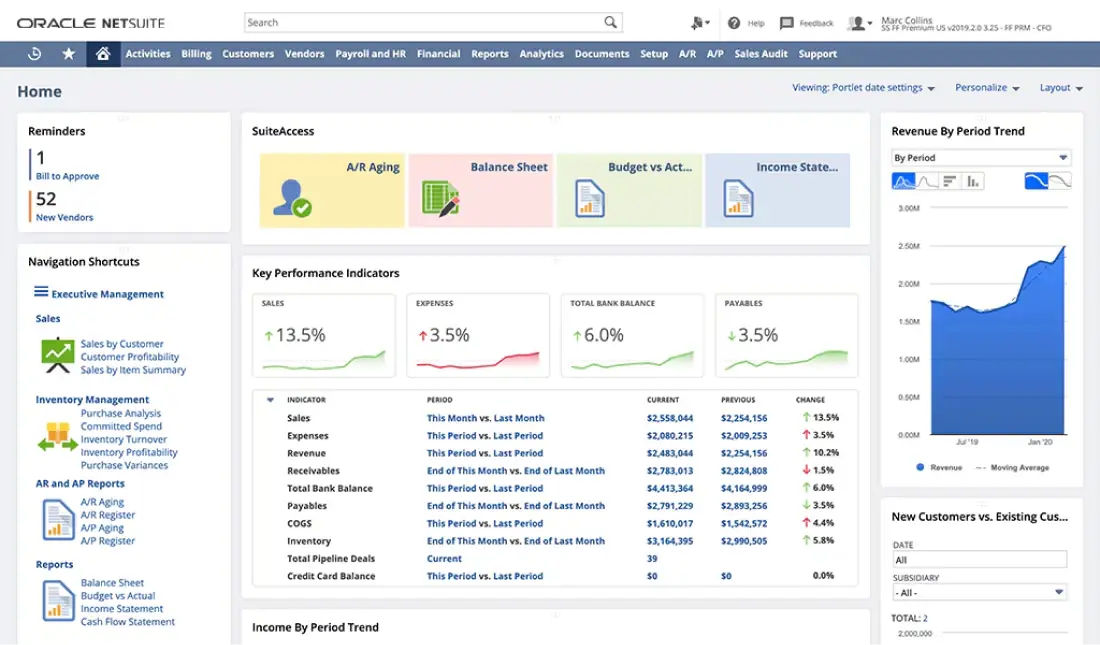
NetSuite is a cloud-based ERP solution that provides comprehensive tools for financial management, inventory tracking, and CRM. Designed for growing businesses, it offers real-time insights into operations to drive informed decision-making.
The system automates complex tasks such as invoicing, procurement, and reporting, streamlining operations and saving valuable time. Its robust analytics and modular design make it ideal for businesses seeking a reliable platform to support growth and efficiency.
NetSuite Features:
- Financial management and reporting
- Business process automation
- Customizable dashboards and analytics
Pros:
- Scalable solution suitable for growing businesses
- Strong financial and reporting capabilities
- Cloud-based accessibility with built-in security
Cons:
- Implementation and customization can be complex and costly
- Users may experience a steep learning curve
- Subscription pricing can be expensive for smaller businesses
13. Odoo
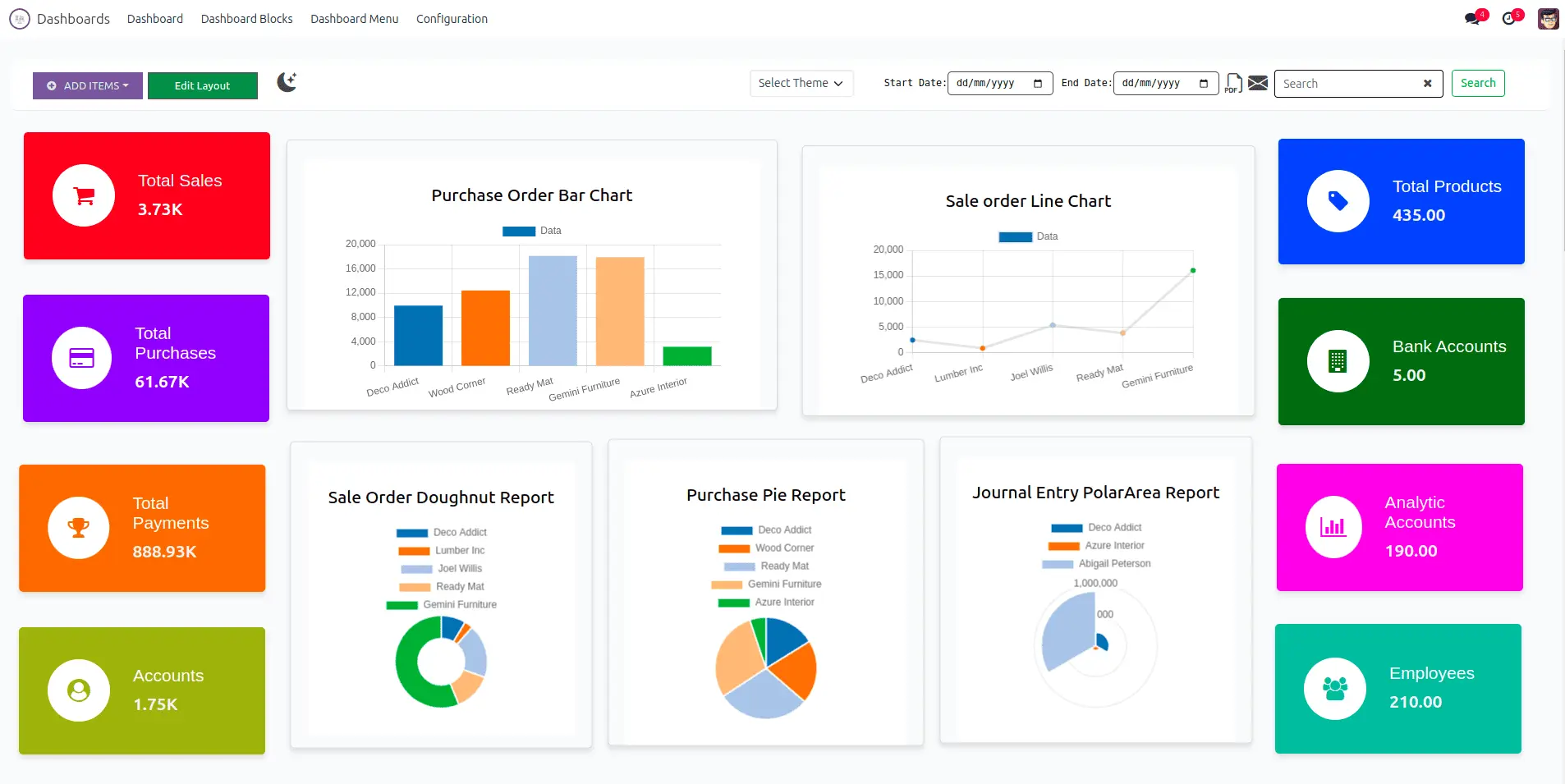
Odoo is a modular ERP system offering a customizable suite of apps for businesses of all sizes. From accounting and inventory to HR and CRM, Odoo covers various business needs with easy-to-deploy modules.
Its open-source framework allows flexibility, enabling companies to tailor solutions as per their unique requirements. Odoo simplifies workflows and supports operational efficiency through automation and seamless integration.
Odoo Features:
- Accounting and financial management
- Automated replenishment and inventory tracking
- E-commerce integration
- Enables businesses to manage global operations
Pros:
- The software allows for significant customization
- Provides user guides, online tutorials, and training modules
- Industry-specific solutions, particularly strong in manufacturing
Cons:
- New users may find the system complex due to its extensive features
- The implementation process can be intricate and time-consuming
- Additional modules may be needed for specific needs, requiring extra costs
14. Kinetic
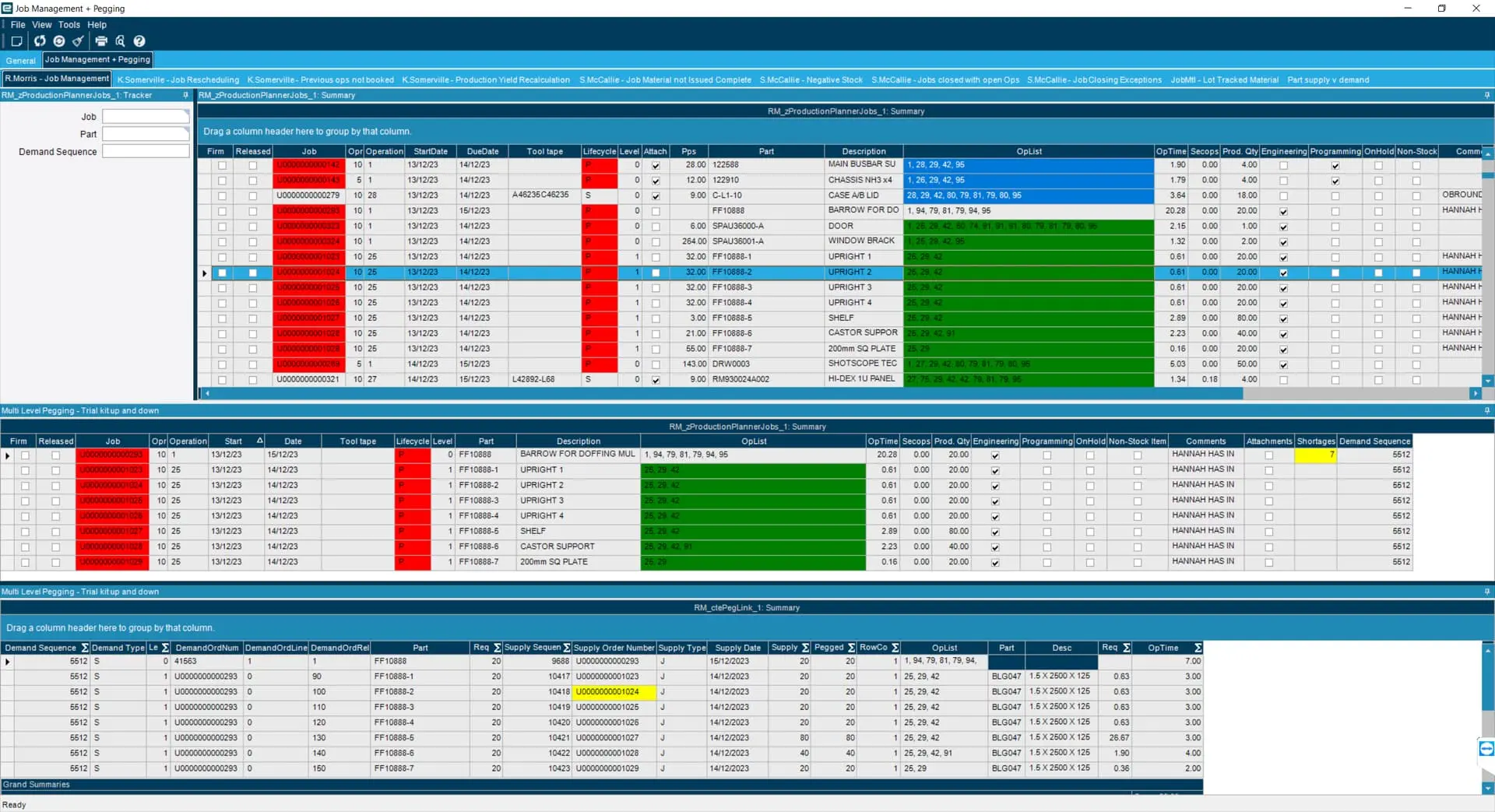
Kinetic is a user-friendly ERP solution tailored to the manufacturing and distribution industries. It streamlines production planning, inventory management, and supply chain operations for optimized performance.
Moreover, the platform provides real-time data tracking, enabling businesses to make well-informed decisions. With its industry-specific focus, Kinetic ensures operational demands are met efficiently, empowering companies to adapt quickly to market changes.
Kinetic Features:
- Sales pipeline management and marketing automation
- Production management
- Advanced Planning and Scheduling (APS)
- Business intelligence and analytics
Pros:
- Highly configurable and modular architecture
- Excels in handling manufacturing operations
- Offers end-to-end visibility across the entire supply chain
Cons:
- Difficult to set up and implement, requiring an expert team
- Expensive and may incur additional costs for customization and support
- Some integrations with third-party applications may be challenging
15. Deltek
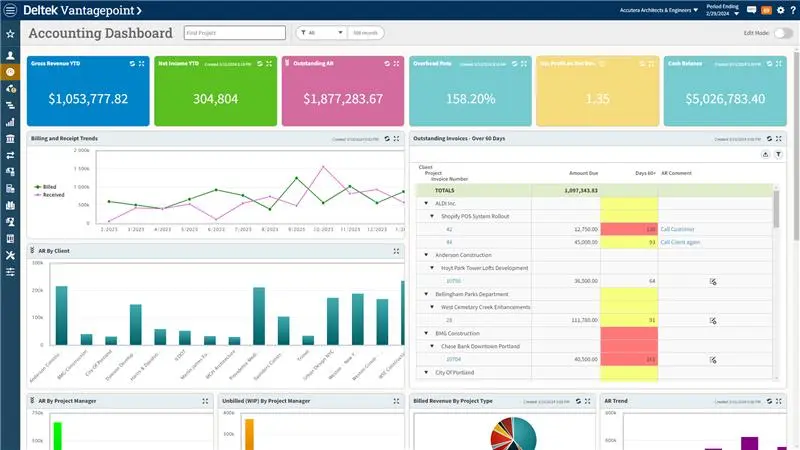
Deltek is an ERP platform designed for project-based businesses. It offers robust tools for resource, financial, and schedule management. It provides enhanced visibility into project performance, enabling teams to deliver projects on time and within budget.
The system simplifies time tracking, budgeting, and expense management while supporting compliance with industry standards. Deltek is ideal for businesses in sectors like consulting, construction, and government, where project efficiency is critical.
Deltek Features:
- Project management
- Document and workflow management
- Multi-currency and multi-language support
- Business intelligence and analytics
Pros:
- Flexible to tailor workflows and reports to meet business needs
- Good training resources and assistance during implementation
- The cloud-based system enables access from various devices
Cons:
- Users may face challenges due to the complexity of the system
- Limited customization options in some areas
- Can be expensive, especially when adding features or integrations
16. QuickBooks
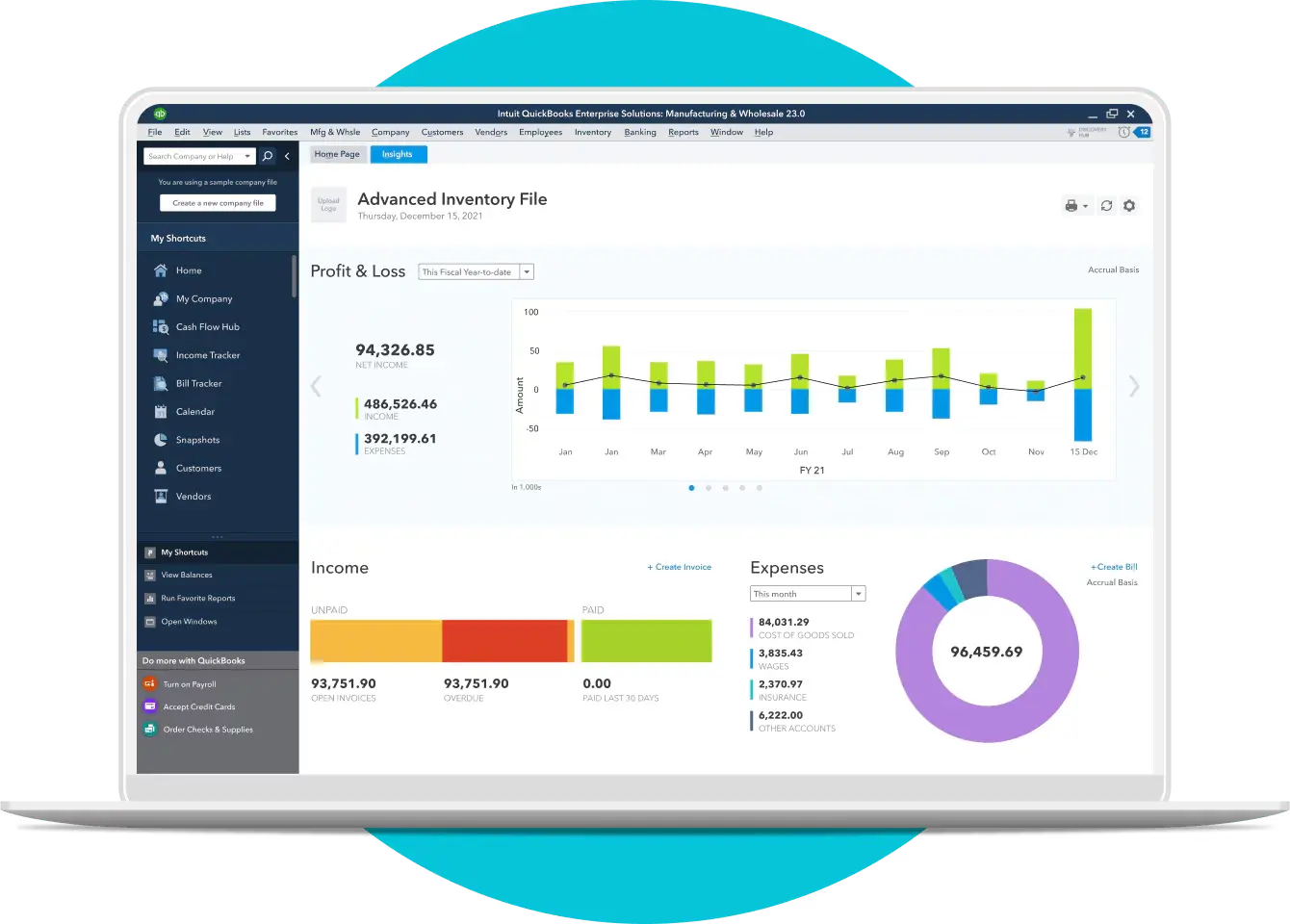
QuickBooks is a widely recognized ERP solution for small businesses that focuses on accounting, payroll, and financial tracking. Its user-friendly interface simplifies managing invoices, expenses, and tax compliance, even for those without accounting expertise.
By automating routine financial processes, QuickBooks increases accuracy and reduces administrative workload. Its cloud-based platform ensures secure access from anywhere, making it a go-to solution for small businesses seeking convenience and reliability.
QuickBooks Features:
- Invoicing and payment management
- E-commerce integration
- Manage transactions in multiple currencies
- Automated financial recording
Pros:
- The software integrates well with numerous third-party applications
- Automatic software updates and data backups
- The cloud-based system allows access from anywhere with an internet connection
Cons:
- Lacks industry-specific features (e.g., inventory management or e-commerce tools)
- Scalability issues
- Dependence on stable internet connectivity for optimal performance
17. MYOB
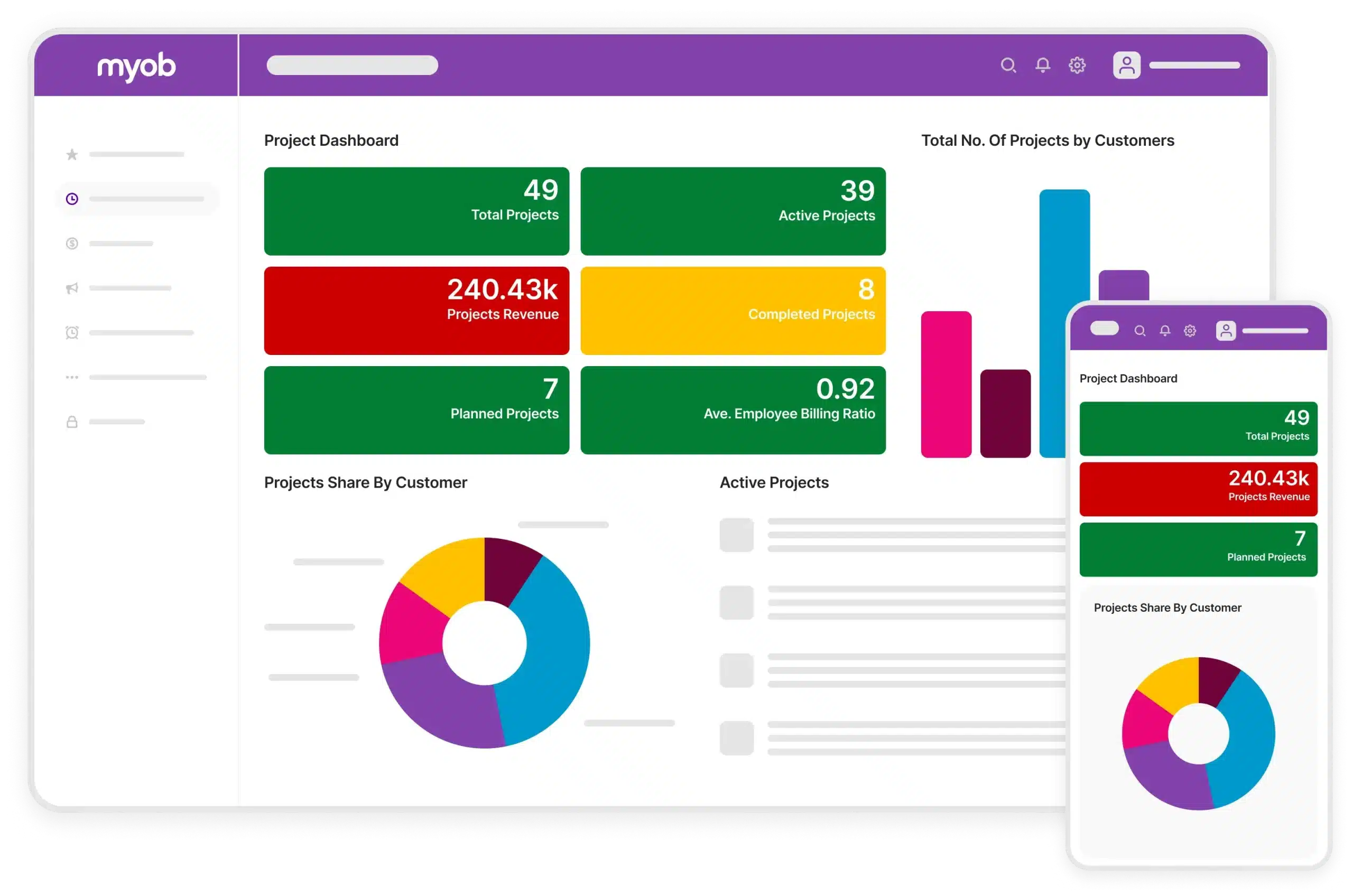
MYOB is a business management platform offering streamlined solutions for accounting, payroll, and tax compliance. It includes tools for inventory tracking and invoicing, making it a one-stop solution for managing financial operations.
Furthermore, the system provides real-time updates to reduce manual errors and ensure accurate record-keeping. With its simple interface and comprehensive tools, MYOB helps small- and medium-sized enterprises optimize their business workflows.
MYOB Features:
- Invoicing and payroll management
- Inventory management
- Multi-currency support
- Reporting and analytics
Pros:
- Clean and intuitive interface that simplifies navigation
- It can be integrated with over 350 third-party applications
- The mobile app enables users to perform essential tasks on the go
Cons:
- The many features can be overwhelming, needing training to use the software fully
- Certain functionalities may be restricted to either the desktop or cloud versions
- Third-party integrations may be limited compared to competitors
18. FreshBooks
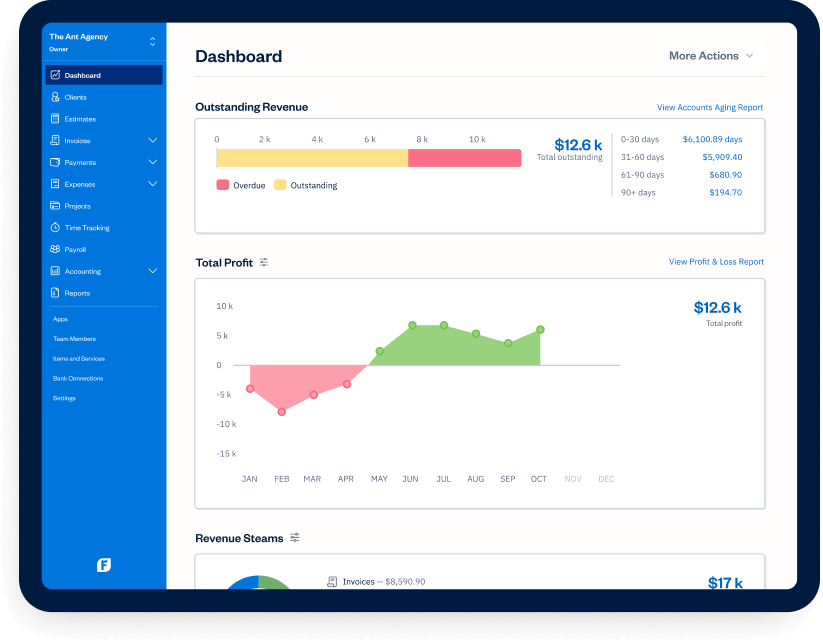
FreshBooks is a cloud-based invoicing and accounting solution designed for small businesses and freelancers. It simplifies managing finances with features like automated invoicing, expense tracking, and customizable reports.
By automating tasks such as recurring billing and payment reminders, FreshBooks saves time and reduces errors. Its intuitive design ensures users can focus on growing their business instead of getting bogged down by financial admin work.
FreshBooks Features:
- Invoicing and expense tracking
- Project management
- Time tracking
- Reporting capabilities
Pros:
- FreshBooks is renowned for its intuitive design
- The mobile applications for iOS and Android are highly rated
- The software offers unlimited invoicing across all plans
Cons:
- It may not scale well for larger enterprises due to limits on users
- The cheapest plan lacks features such as bank reconciliation and accountant access
- Basic inventory features may pose challenges for growing companies
19. Striven
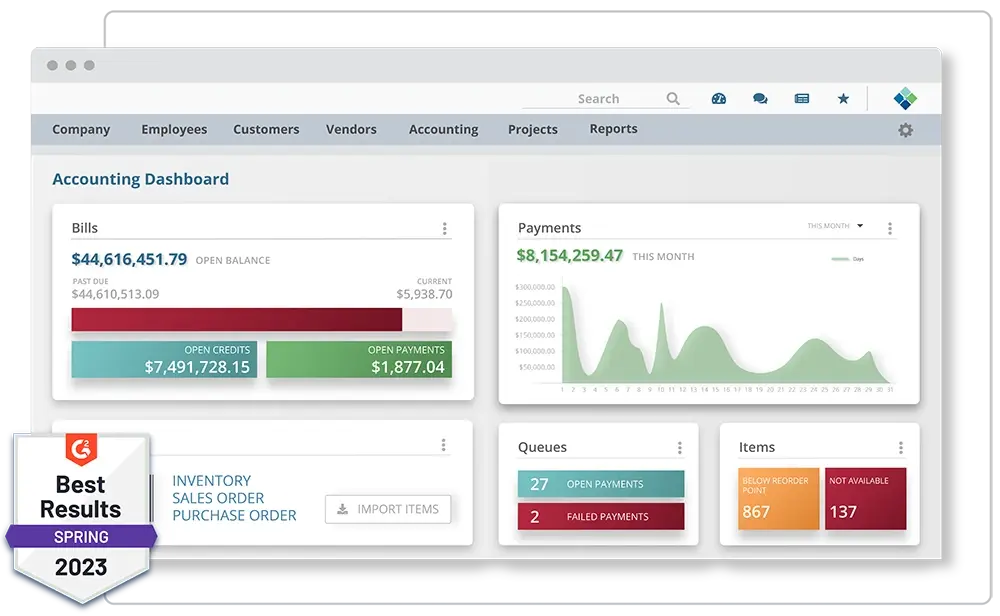
Striven is a cloud-based ERP platform that integrates project management, customer relationship management (CRM), and accounting. It delivers an all-encompassing view of business operations, making it suitable for organizations across industries.
Moreover, the platform enhances team collaboration by providing a unified dashboard for communication and task management. With automation and cost-effective tools, Striven empowers businesses to achieve operational excellence without overspending.
Striven Features:
- Expense tracking and payroll management
- Functionalities for managing customer interactions
- Tools for planning, tracking tasks, setting budgets
- Reporting and analytics
Pros:
- The intuitive design simplifies navigation and reduces the learning curve
- Allows for significant customization of reports and dashboards
- Responsive and helpful customer support team
Cons:
- The extensive features can be overwhelming for new users
- Dependency on a stable internet connection for optimal performance
- Lacks the depth of analytics offered by more robust competitors
20. M1 from ECI ERP
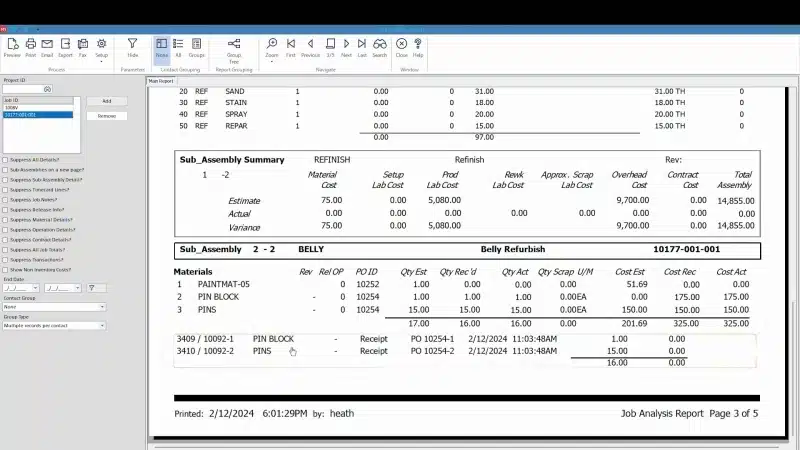
M1 ERP, developed by ECI Software Solutions, is an enterprise resource planning system designed for small to medium-sized discrete manufacturers. The platform integrates various business processes, including accounting, sales, production, and inventory management, to help streamline operations and enhance efficiency within manufacturing environments.
However, users have reported that M1 ERP comes with a steep learning curve, particularly for new users, which can delay full adoption and productivity. Additionally, some users have experienced slow response times during data inquiries and report generation, which can impact workflow efficiency.
M1 ERP Features:
- Comprehensive reporting and analytics
- Inventory management tools for tracking raw materials and finished goods
- Customer and vendor relationship management modules
- Integration of various business processes
Pros:
- Integration of multiple business functions into one platform
- Real-time visibility into operations for data-driven decision-making
- Scalable for growing manufacturing businesses
Cons:
- Steep learning curve for new users
- Performance issues such as slow response times during data inquiries
- Complex customization process requiring technical expertise
21. Workday Financial Management
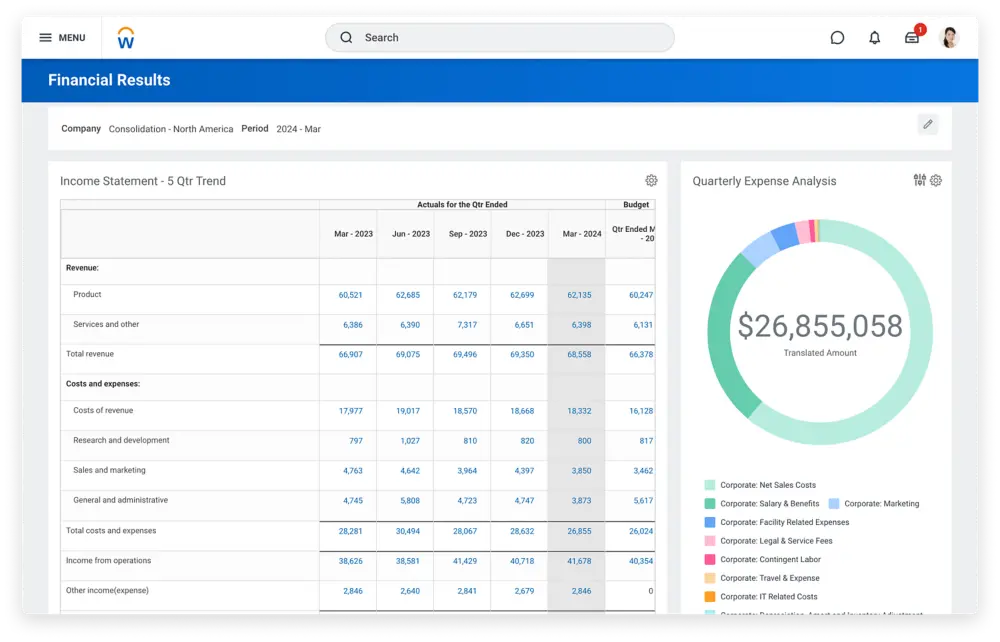
Workday Financial Management is a cloud-based enterprise resource planning (ERP) solution designed to unify and streamline financial processes for organizations of varying sizes. It integrates core financial functions such as accounting, procurement, and expense management into a single platform, aiming to provide real-time insights and enhance operational efficiency.
However, users have noted certain challenges with Workday Financial Management. The implementation process can be complex and time-consuming, often requiring substantial training and resources. Integration with other systems, while feasible, can sometimes be less straightforward, potentially complicating data synchronization across platforms.
Workday Financial Management Features:
- Core Accounting
- Financial Reporting and Analytics
- Procurement Management
- Expense Management
Pros:
- Unified Financial Processes
- Real-Time Insights
- Scalability
Cons:
- Complex Implementation
- Limited Customization
- Integration Challenges
Conclusion
Selecting the right ERP system is crucial for optimizing business operations and ensuring long-term growth. While Infor ERP offers robust features, businesses must consider factors like implementation complexity, cost, and flexibility before making a decision.
Among the top alternatives of Infor ERP, HashMicro ERP stands out as a powerful and cost-effective solution tailored to meet the diverse needs of businesses. With unlimited user licenses, AI-powered automation, and seamless module integration, HashMicro ERP enables businesses to improve efficiency and make data-driven decisions with ease.
If you’re looking for an ERP system that provides comprehensive features, transparent pricing, and local support, HashMicro ERP is the ideal choice. Try the free demo now!





































